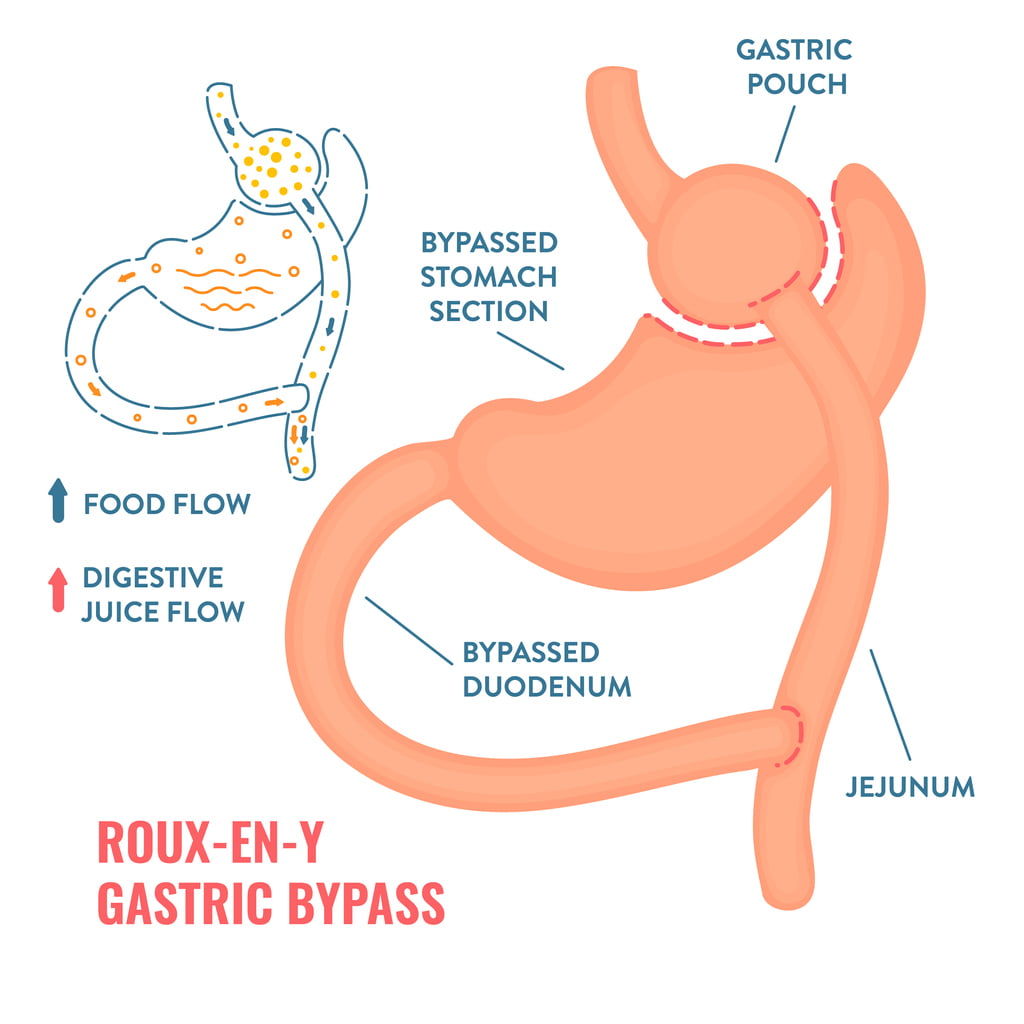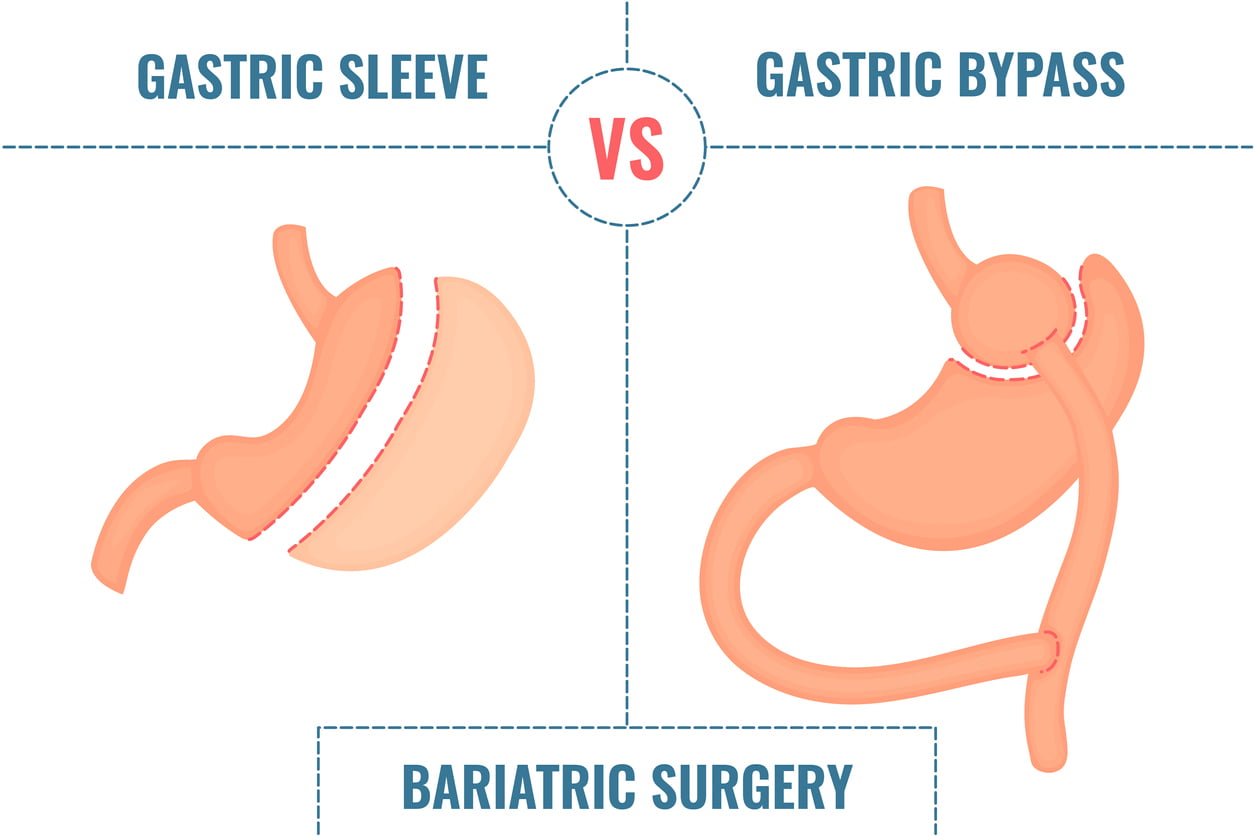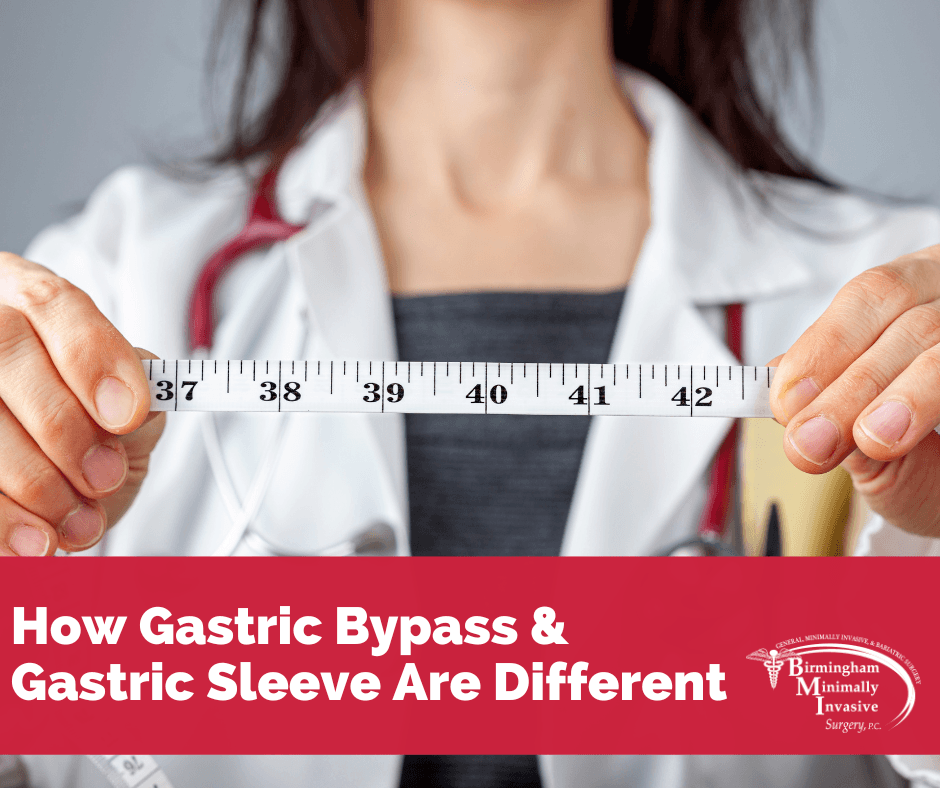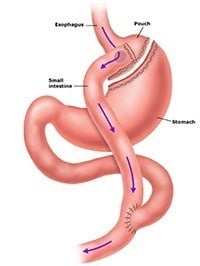

Getting bariatric surgery for weight loss is a major decision that could be potentially life-altering. However, it has become increasingly popular, with an estimated 250,000 procedures performed each year in the United States alone. Despite its popularity, deciding on weight loss surgery can prompt many questions.
With so many options available, you may not know which is right for you. Fortunately, the team at Birmingham Minimally Invasive Surgery is here to discuss the pros and cons of two popular bariatric procedures: gastric sleeves and gastric bypass surgery. We perform these procedures, along with others, at our Birmingham center.
Gastric Sleeves vs. Gastric Bypass Surgery
Two commonly performed bariatric procedures are gastric bypass surgery and gastric sleeves. While both are effective for weight loss, each has its advantages and disadvantages, depending on the patient’s needs and desired outcomes. Your surgeon can discuss these with you further during your initial consultation.
What Is a Gastric Sleeve?
A gastric sleeve, or sleeve gastrectomy, is a procedure that changes the size and structure of your stomach. Since the stomach is smaller after the procedure, the number of calories you can consume from food is limited, helping you reach your weight loss goals. Performed laparoscopically, it requires minimal downtime.
The ideal candidate for this procedure has a body mass index (BMI) greater than or equal to 40 and has been unable to lose weight through diet and exercise. Patients who have BMIs between 30 and 40, along with other medical problems such as diabetes, sleep apnea, heart disease, or high blood pressure, will also be considered.
While most patients respond well to this procedure, it does come with some potential complications. Like with any bariatric surgery, you must follow a special diet afterward. The stomach may stretch over time, leading to weight regain. In this case, revisional weight loss surgery may be a possibility to obtain the desired result.
What Is a Gastric Bypass?
Having been performed since 1967, the gastric bypass is one of the first bariatric surgeries to become available in the United States. It is one of the most effective for achieving and maintaining long-term weight loss. Patients tend to lose a significant amount of weight rapidly in the first six months and then slow down in their weight loss for the next six months.
After gastric bypass surgery, patients will stay in the hospital overnight. The procedure is performed laparoscopically, like a sleeve gastrectomy. However, the procedure is more complicated than sleeve gastrectomy, secondary to disconnecting and reconnecting the intestines. It combines restriction and malabsorption by creating a stomach pouch that only holds around two ounces, with a 150 cm limb of the small intestine bypassed by attaching it to the pouch.
Before and after the procedure, patients must follow a special diet, including nutritional supplements, to maximize results. However, it is considered the ideal procedure for individuals with diabetes, high blood pressure, sleep apnea, and other health concerns, as it can be reversed if medically necessary.
Find the Right Bariatric Procedure for You at BMI
Each patient’s situation is different and requires a customized approach to weight loss. That’s why Birmingham Minimally Invasive Surgery offers a variety of options to help our patients lose weight, including gastric sleeves and gastric bypass surgery. To get started on your weight loss journey with bariatric surgery, contact us at (205) 858-1211. Our experienced surgeons will discuss your options with you to find the best one for your needs and desired outcome.
Achieve Stigma-Free Weight Loss at BMI
No matter which bariatric procedure you choose, the team at Birmingham Minimally Invasive Surgery can provide the support you need to be successful in your weight loss journey. If you have specific concerns or questions about our weight loss procedures, including gastric sleeves and gastric bypass surgery, contact us for personalized support at (205) 858-1211.

 From diminished self-esteem and insecurities to health concerns and discomfort, excessive body fat can harm your physical and mental health. If you’ve been trying to lose weight with traditional methods, like diet and exercise, to no avail, we understand how frustrating it can be. However, weight loss surgery may be your long-awaited solution!
From diminished self-esteem and insecurities to health concerns and discomfort, excessive body fat can harm your physical and mental health. If you’ve been trying to lose weight with traditional methods, like diet and exercise, to no avail, we understand how frustrating it can be. However, weight loss surgery may be your long-awaited solution!





